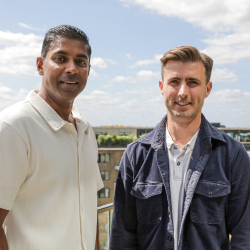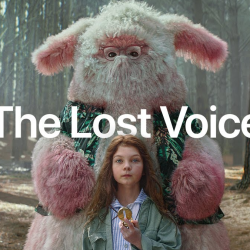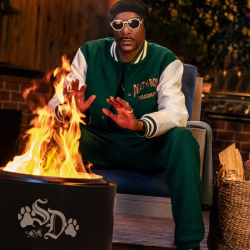In April 2022, Wet Leg, Father John Misty, and Jack White occupied the top 3 positions in the UK Albums chart, the first time this had happened in over a decade. The little guys sticking it to the man, with properly good music that was being appreciated by fans across the country.
The indie sector has been well documented and on the rise for many years. In 2020, indie labels and self-releasing artists saw their revenues grow by 27%, compared to an overall market growth of 7%, and globally the indie-share of the music market is at an all-time high of 43.1%.
David one, Goliath nil.
In the same month, Little Simz announced that she was having to cancel the US leg of her tour as the finances just didn’t stack up.
Simz said, “Being an independent artist, I pay for everything encompassing my live performances out of my own pocket and touring the US for a month would leave me in a huge deficit. As much as this pains me to not see you at this time, I’m just not able to put myself through that mental stress.”
That an artist like Little Simz — fiercely talented, multi-award winning (she picked up a Brit for breakthrough artist this year), and creatively dexterous (as demonstrated in her brilliant performances on Netflix’s Top Boy series) — should have to make decisions about touring versus financial stability, is a stark warning about the health of the indie sector in music and highlights the challenges that creative people face when going it alone.
An artists’ love of music, of moving crowds, of releasing and articulating their deepest creative urges are what propel them to try and forge a career in the industry. Yet there is always the fear that it won’t work, and you won’t be able to cut it and provide for yourself or your family.
Independence brings freedom — or at least that’s what we tell ourselves when we start something new – and in many ways, this is true. No creative interference and complete freedom to decide your sound, your style and your story as an artist. You hustle and build your career on your terms and have the freedom to choose how you spend your returns.
Yet it also brings the stresses and strains of everything associated with running a business — marketing, differentiation, brand, recruitment, cash flow.
“A couple of my videos have cost upwards of £50,000,” notes AJ Tracey. “If I I don’t recoup on the video, there’s no label behind me to write off that money. It’s me. I’ve just lost £50k out of my account.”
The fear of complete independence is real as are the consequences of failure.
With our own business, we approached investors off the bat, because the fear of going it completely alone was untenable. Yet having the opportunity to buy those investors out and becoming truly independent has been the making of our agency and has enabled us to fall in love with it again.
The choice of Indie or Major for artists is a question of balancing the fear with the love, balancing autonomy with control, and balancing risk with reward. The conflict is real, but the struggle of the indie is worth it.
As Little Simz spits on ‘I love you, I hate you’: “So much, I would give my life for this / If the bullet was the beat I would probably die for this / How many times did I cry for this? /I would hate myself if I didn’t at least try for this”
Featured image: Little Simz






























